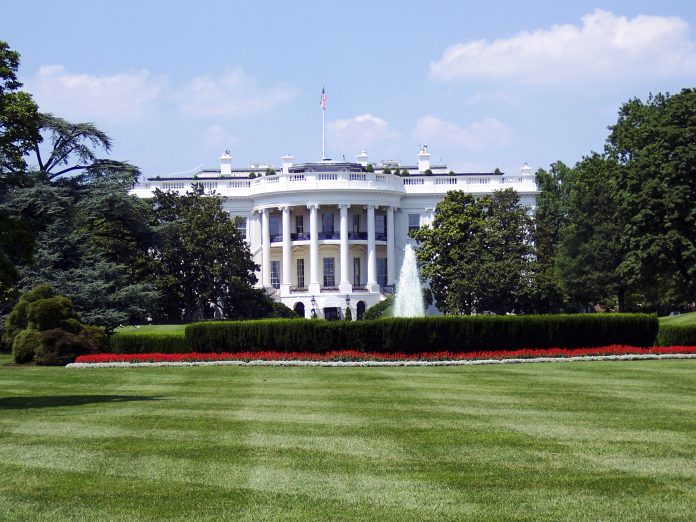Right now, our communities are going through change due to the larger change in command in our nation for the United States. But, even before this time, our country found itself in the midst of change due to publicized instances of racism, and police brutality. These images and the conflict that subsequently ensues are instantly made available due to technology. At present, our social media timelines are overwhelmed with changes in policy at a national and local level. In some ways, this allows us to verify the sources of information to distinguish facts from publicity and ways we can help. However, it also means that these acts are unedited, and so can expose us to information that leaves lasting effects on us mentally and emotionally. And for some, watching this exchange leaves us in a place of feeling helpless.
These events force us to think, and reflect, whether we want to or not.
In writing this, these images are also balanced by images of hope around me. I cannot help but to reflect on recent events, such as the Women’s March, which placed strong images of women within public arenas, who sought and demanded respect for women’s rights. I am also surrounded by changes that are being made in our communities by organizations such as ADL.org, who seeks to develop trainings for police officers in regards to ethics and diversity. There are also local efforts in the capital of my own city to provide forums where people can seek affirmation, understanding and support. These experiences help me to center, and find hope in distressing times.
How Do We Make Sense of It?
Often, I am also pressed with the question of how to make sense of the changes around me. Two subsequent questions then usually automatically arise for me: (1) how do I cope with this information in emotionally healthy ways, and (2) how should my Christian beliefs play a role in my decision-making process. From the standpoint of the second, I have to push through and dig in through a number of sources. In trying to reason through this information, I want to first start with why it is helpful for us as Christians to be involved in political events. As believers, we are encouraged to see the world through a different light, and to shine the light of Christ brightly for others to see (e.g., Ephesians, 5:8). That means we should not only look at policy, laws and regulations in such a way that it benefits us, but so that it benefits those around us, and future generations (e.g., Deuteronomy 11:19). To reach these goals effectively, we have to use strategies that keep us focused on what is “truth”, so that as we tackle these areas, we are able to do so without bias. This means making sure to regularly use your devotional and meditation times to center and focus on God’s Word, His truths, and then the social issues around us. By doing so, you are able to see the information presented more clearly, and with greater confidence as you sift through it. If you are not Christian, focusing in on the principles specific to your own spiritual beliefs can create such a driving force as well.
Making sure to keep Christian values at the forefront when dealing with social issues is not a new thing. Even in doing an initial internet search, you will see this theme throughout each election that has had a focus on social media sites. One reason for this focus is that we have a charge to engage, encourage, and educate the world around us in a way that allows God’s light to fill our hearts and lives. Finding your role can reduce the stress and strain you feel, by allowing you to redirect that energy to positive outlets of change! As you consider your role in this process, consider this article: Christ: Lord of our Politics
https://bible.org/seriespage/lesson-89-christ-lord-our-politics-rom-131-7-and-other-scriptures
From Helpless to Hopeful Movement
In beginning this journey, we have to realize that there is a lot of information out there. Because of this reality, researchers are working to try to understand the severity of these effects on our level of functioning. From what we know so far, there is a link between increased social media use and overall distress (Hampton et al., 2015). And, we also see a link between heavy use and symptoms of distress in teens, and in relation to symptoms that are consistent with vicarious trauma exposure.
There are times, with any stressor, where we have to determine if this is a stressor that we are unable to change, and should find ways to cope with and accept them, and there are other times when we can and should act. In regards to social and political changes, the latter is often true. In fact, there are tons of organizations, nationally and internationally, that are designed to help us find our political voices and use them effectively. Here is one example:
USING SOCIAL MEDIA FOR GOOD
In talking about this topic, we also have to come to grips that often times we are first hit with new news through social media platforms. Although there are times when negativity seems to flood all of our time lines on social media sites, there are great uses for this medium. The difficulty is separating the information from the stress that we feel, and using this information to bring about positive growth. Here, I want to focus on just the area of political change. Here are some things to consider as you process the information you are studying within online sites:
- Can you identify the component of the information that is causing distress and cope with it in healthy ways?
- Is this an issue you can help to improve in positive ways? For instance, can you join a political group or social agency that has been affected? Are there ways that you can bring about lasting change in your own community by donating just a couple of hours a month?
- There are times that the information we receive through social media sites are skewed by the author. Are there ways that you can gain credible information through other means, such as email newsletters from government entities in your area or even not-for-profit sites. For example, I receive notifications on health care reform in my state through an email newsletter, so that I am aware of local changes. I am also tied to state professional organizations, so that I am able to share my concerns and lobby with others who share similar views.
Getting Started
So, if you have not caught it yet, the goal of this blog post is to encourage you to use the tension and anxiety you feel about community change to drive yourself forward to positive activism. To help you begin to consider different ideas, here are some questions to consider to help you find your next move:
- Are there local efforts designed to increase the number of people who are eligible to vote? Could you partner with these organizations to increase their level of visibility?
- Have you identified your own representatives, and found ways to make your voice heard to them?
- Are there local forums and panels that you can help promote? These venues tend to provide a safe place where information can be shared and people can ask questions about this process.
- Are you connected to avenues for local newsletters so that you can stay on top of proposed changes in policy and work to disseminate this information?
- Is there a local agency that focuses on issues that are important to you and/or that could even benefit from your professional skills? Could you volunteer a couple of hours a month to strengthen their works?
- Are there national agencies that can benefit from your local efforts, no matter how small? Some examples might include the Anti-Defamation League, Women’s Media Center, Planned Parenthood, or even local English/Citizen Preparation centers.
Additional Readings and Resources:
4 Reasons Christians should care about politics. Retrieved from http://erlc.com/resource-library/articles/4-reasons-christians-should-care-about-politics
8 Ways to Meaningfully Support Social Justice Movements. Retrieved from http://mashable.com/2016/03/26/social-justice-get-involved/#hgfbbp.wiGq3
Anti-Defamation League: http://www.adl.org/
Christians and Politics: http://www.focusonthefamily.com/socialissues/understanding-the-issues/biblical-citizenship/christians-and-politics
Gary, J. (2015). Social Media: How to use it effectively. Journal of Orthopedic Trauma. Retrieved from http://journals.lww.com/jorthotrauma/Abstract/2015/11001/Social_Media___How_to_Use_It_Effectively.3.aspx
Hampton, K., Rainie, L., Lu, W., Shin, I., & Purcell, K. (2015). Psychological Stress and Social Media Use. Retrieved from http://www.pewinternet.org/2015/01/15/psychological-stress-and-social-media-use-2/
Holliday, S. W. (2012) An untapped resource: The power of volunteerism. Retrieved from http://www.huffingtonpost.com/stuart-w-holliday/an-untapped-resource-the-_b_1386054.html
Huffington Post (2016) When black death goes viral. Retrieved from http://www.huffingtonpost.co.uk/whitney-iles/trauma-and-social-media-w_b_12117946.html


 Tamara Reeves, Ph.D., grew up in Oklahoma City, OK, and graduated from high school from Douglass with hopes of becoming a psychologist. Dr. Reeves went on to complete her Bachelor of Arts degree at the University of Central Oklahoma in psychology and graduated Cum Laude. At UCO, Dr. Reeves applied for the Ronald McNair Scholar’s program, and was accepted into the first cohort at this institution. She completed two research projects within this program and began working for a federally funded clinical research trial during her senior year in college. In the fall of 2002, Dr. Reeves began her graduate work at the University of Memphis. She subsequently completed her master’s (May 2005) and doctoral degree (August 2008) within the clinical psychology program.
Dr. Reeves initially began her graduate work with an emphasis in child and family studies. While completing her pre-doctoral internship at the University of Texas Health Science Center at San Antonio, Dr. Reeves began working within two grant funded programs that helped develop clinical services for adults with schizophrenia and bipolar disorder. Following this year of training, Dr. Reeves moved back to Oklahoma and worked for three years within the Alcohol and Drug Abuse Prevention Office at the University of Central Oklahoma. At present, she works as a Licensed Clinical Psychologist and the owner of
Tamara Reeves, Ph.D., grew up in Oklahoma City, OK, and graduated from high school from Douglass with hopes of becoming a psychologist. Dr. Reeves went on to complete her Bachelor of Arts degree at the University of Central Oklahoma in psychology and graduated Cum Laude. At UCO, Dr. Reeves applied for the Ronald McNair Scholar’s program, and was accepted into the first cohort at this institution. She completed two research projects within this program and began working for a federally funded clinical research trial during her senior year in college. In the fall of 2002, Dr. Reeves began her graduate work at the University of Memphis. She subsequently completed her master’s (May 2005) and doctoral degree (August 2008) within the clinical psychology program.
Dr. Reeves initially began her graduate work with an emphasis in child and family studies. While completing her pre-doctoral internship at the University of Texas Health Science Center at San Antonio, Dr. Reeves began working within two grant funded programs that helped develop clinical services for adults with schizophrenia and bipolar disorder. Following this year of training, Dr. Reeves moved back to Oklahoma and worked for three years within the Alcohol and Drug Abuse Prevention Office at the University of Central Oklahoma. At present, she works as a Licensed Clinical Psychologist and the owner of 

















